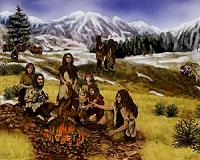| . |  |
. |
Sydney (AFP) May 11, 2010 Climate change could make much of the world too hot for human habitation within just three centuries, research released Tuesday showed. Scientists from Australia's University of New South Wales and Purdue University in the United States found that rising temperatures in some places could mean humans would be unable to adapt or survive. "It would begin to occur with global-mean warming of about seven degrees Celsius (13 Fahrenheit), calling the habitability of some regions into question," the researchers said in a paper. "With 11-12 degrees Celsius warming, such regions would spread to encompass the majority of the human population as currently distributed." Researcher Professor Steven Sherwood said there was no chance of the earth heating up to seven degrees this century, but there was a serious risk that the continued burning of fossil fuels could create the problem by 2300. "There's something like a 50/50 chance of that over the long term," he said. The study -- which examined climate change over a longer period than most other research -- looked at the "heat stress" produced by combining the impact of rising temperatures and increased humidity. Sherwood said climate change research had been "short-sighted" not to probe the long-term consequences of the impact of greenhouse gases blamed for global warming. "It needs to be looked at," he told AFP. "There's not much we can do about climate change over the next two decades but there's still a lot we can do about the longer term changes." In a commentary on the paper, published in the US-based Proceedings of the National Academy of Sciences, Australian National University academics said climate change would not stop in 2100. "And under realistic scenarios out to 2300, we may be faced with temperature increases of 12 degrees (Celsius) or even more," Professor Tony McMichael said. "If this happens, our current worries about sea level rise, occasional heatwaves and bushfires, biodiversity loss and agricultural difficulties will pale into insignificance beside a major threat -- as much as half the currently inhabited globe may simply become too hot for people to live there."
Share This Article With Planet Earth
Related Links All About Human Beings and How We Got To Be Here
 Neanderthal Genome Yields Reveals Extensive Interbreeding
Neanderthal Genome Yields Reveals Extensive InterbreedingSanta Cruz CA (SPX) May 10, 2010 After extracting ancient DNA from the 40,000-year-old bones of Neanderthals, scientists have obtained a draft sequence of the Neanderthal genome, yielding important new insights into the evolution of modern humans. Among the findings, published in the May 7 issue of Science, is evidence that shortly after early modern humans migrated out of Africa, some of them interbred with Neanderthals, ... read more |
|
| The content herein, unless otherwise known to be public domain, are Copyright 1995-2010 - SpaceDaily. AFP and UPI Wire Stories are copyright Agence France-Presse and United Press International. ESA Portal Reports are copyright European Space Agency. All NASA sourced material is public domain. Additional copyrights may apply in whole or part to other bona fide parties. Advertising does not imply endorsement,agreement or approval of any opinions, statements or information provided by SpaceDaily on any Web page published or hosted by SpaceDaily. Privacy Statement |